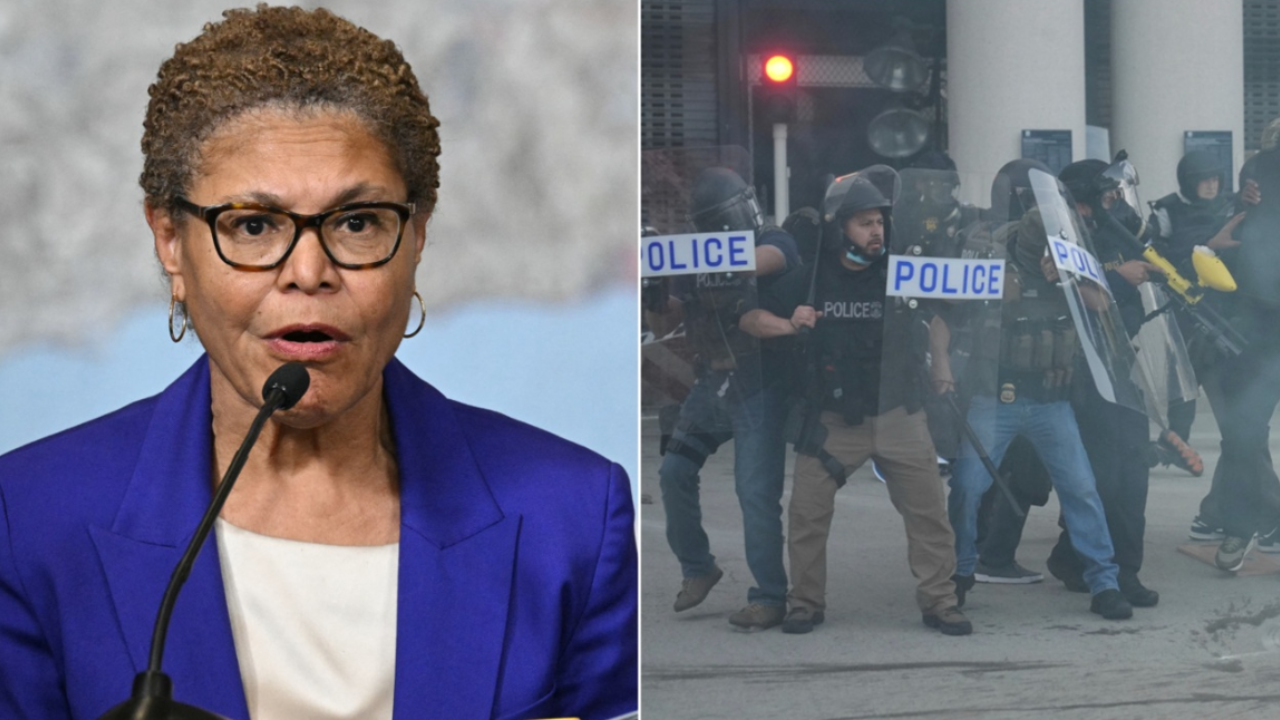CUNY Chancellor Félix Matos Rodríguez and two other college chiefs will be hauled before the House Education Committee next month to get grilled about the antisemitism that has festered at their schools.
Rodríguez will join Georgetown University interim President Robert Groves and the University of California, Berkeley Chancellor Rich Lyons in testifying before the education panel July 9, officials said.
The hearing will center around the role of “faculty, funding and ideology” in fueling antisemitism on campuses and mark the second high-profile session the panel has had this year. The move comes after the panel’s deep dive into antisemitism in non-Ivy League institutions last month.
“We continue to see antisemitic hatred festering at schools across the country,” said House Education Committee Chairman Tim Walberg (R-Mich.) in a statement.
“While much of the discussion has focused on the devastating effects of antisemitism, this hearing will focus on the underlying factors instigating antisemitic upheaval and hatred on campus.”
The City University of New York — the nation’s largest public urban college system with 25 degree-granting institutions — has been dogged by complaints of antisemitism for years.
An independent probe commissioned by Democratic Gov. Kathy Hochul and released in September found that CUNY needed a top-to-bottom overhaul to combat “alarming’’ antisemitism fanned by its own faculty and do-nothing higher-ups.
The state is the principal source of funding for CUNY’s four-year schools, such as Hunter, and the Big Apple chips in to help pay for its community colleges.
The governor and Mayor Eric Adams appoint the trustees to CUNY’s policy-making board.
There’s been a spate of Jew-hating and Israel-bashing controversies since the latest Mideast war broke out Oct. 7, 2023.
Just last week, The Post reported that the board chairman of CUNY’s School of Labor and Urban Studies was forced to resign for spreading “antisemitic conspiracy theories” about Israel.
Anti-Israel agitators also brawled with cops at Brooklyn College last month after the protesters set up a tent encampment and disrupted final exams. An officer was forced to fire a Taser during the violent clash.
In addition, last spring at City College in Harlem, anti-Israel criminals caused at least $3 million in damage and the need for costly extra security at the campus.
Thus far, Rodriguez, first appointed in 2019, has weathered the storm. The board of trustees recently gave him a mostly positive job evaluation to continue leading the public university.
“The City University of New York is firmly committed to combating antisemitism and ensuring every student and faculty member is safe from discrimination and harassment,” a CUNY rep told The Post.
“We look forward to discussing the steps we are taking to support Jewish members of our campus community and to uphold CUNY’s values of inclusion, safety and respect for all.”
Liora Rez, founder of the group StopAntisemitism, hailed the school network’s president being hauled in front of the congressional panel, saying Rodriguez needs to be held “accountable for turning the CUNY educational system into a system of rot of Jew Hatred.”
Jeffrey Lax, founder of Students, Alumni and Faculty for Equality at CUNY, said his group also is “pleased to see the chancellor will finally be held accountable.”
Georgetown and Berkeley have faced similar issues amid anti-Israel demonstrations on campus.
Last year, students and professors at Georgetown partook in a walkout to “rally for Gaza” in demonstration against Israel’s efforts to subdue the Palestinian terror group Hamas. In September, students gathered outside the building where the university president’s office is located and chanted in favor of divesting from Israel.
More recently, in April, the university’s police were forced to pull multiple anti-Israel protesters out of a building after failing to heed demands to leave.
Berkeley is meanwhile facing a lawsuit from Jewish groups accusing the university of allowing an “unrelenting” slew of antisemitism to fester on campus.
Infamously, the campus’ chapter of Students for Justice in Palestine made an Instagram post that many interpreted as sounding sympathetic to the Oct. 7, 2023, Hamas massacre of Israeli civilians.
“We support the resistance, we support the liberation movement, and we indisputably support the Uprising,” the group wrote shortly after the barbaric attack.
Berkeley has been rife with anti-Israel protests since the inception of the war against Hamas.
“UC Berkeley is committed to combating antisemitism and all forms of hate and has taken meaningful action to achieve this,” a spokesperson for Berkeley told The Post about the upcoming hearing.
“Chancellor Lyons looks forward to testifying before the committee to share how the campus has been investing, and continues to invest, in resources and programs designed to prevent and address antisemitism on the Berkeley campus.”
Congressional Republicans on the education panel are hoping to dovetail with the Trump administration’s broader efforts to crack down on antisemitism on college campuses.
The Trump administration has withheld or threatened to withhold funding from colleges and universities that have not stepped up against antisemitism on campus. The Trump administration has also opened probes into antisemitism at several institutions of higher education.
“Until these factors—such as foreign funding and antisemitic student and faculty groups—are addressed, antisemitism will persist on college campuses,” Walberg wrote.
“Our Committee is building on its promise to protect Jewish students and faculty while many university leaders refuse to hold agitators of this bigotry, hatred, and discrimination accountable.”














